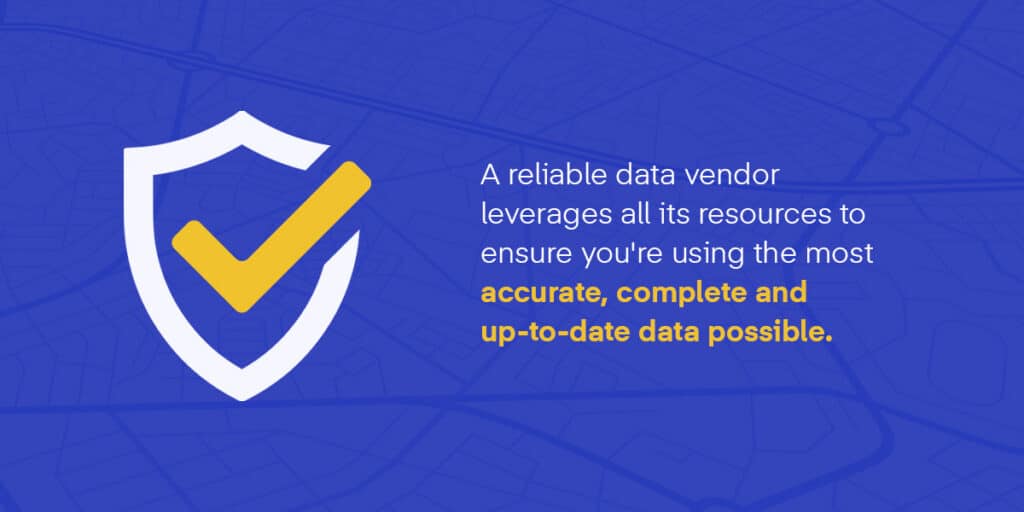Key Features to Try To Find When Choosing a Data Source Company
Selecting a database supplier is a critical choice that can considerably affect your company's procedures and data monitoring method. Amongst the important functions to consider are scalability alternatives, which make sure that your system can adapt to growing needs.
Scalability Options
When choosing a data source company, understanding scalability alternatives is critical to making sure that the chosen option can fit future growth. Scalability describes the ability of a database system to broaden its capacity and performance in reaction to enhanced demand. There are 2 main kinds of scalability: straight and vertical.
Vertical scalability, or "scaling up," involves boosting a single server's resources, such as CPU, RAM, or storage. This approach can be simple and affordable for smaller applications but might get to a limitation where further upgrades are unwise or too expensive.
Horizontal scalability, or "scaling out," includes adding more servers to disperse the tons. This method permits greater adaptability and can fit significant boosts in information quantity and customer website traffic (database provider). It is particularly beneficial for cloud-based database solutions that can dynamically allocate sources based upon need

Safety Procedures

When evaluating security actions, take into consideration the execution of security methods (database provider). Data-at-rest and data-in-transit security are important to make sure that delicate details stays protected, also in case of a security breach. In addition, search for carriers that supply solid authentication devices, such as multi-factor authentication (MFA), to even more boost access control
Routine safety audits and compliance with market standards, such as GDPR or HIPAA, are a measure of a supplier's dedication to information security. In addition, ask about their incident feedback plan; a robust plan can lessen the impact of any type of prospective safety occurrence.
Efficiency Metrics
Examining performance metrics is vital for companies to make certain that their picked data source service provider meets functional needs. Trick performance metrics consist of response scalability, throughput, and time, which jointly determine the performance of database procedures under differing tons.
Feedback time is important, as it reflects just how rapidly the data source can process questions and return results. Organizations should search for metrics that show typical response times during top and off-peak hours. Throughput, usually determined in deals per second (TPS), gives insight right into the data source's capability to deal with high quantities of demands without efficiency destruction.
Scalability examines the data source's ability to expand with the organization's needs. A durable database provider need to show vertical and straight scaling capabilities, enabling seamless changes as important link demands rise and fall. Additionally, understanding latency, especially in dispersed systems, can assist organizations evaluate the responsiveness of the data source throughout different geographical areas.
Client Assistance
Trusted customer support is a foundation of efficient data source administration, supplying organizations with the assistance needed to fix problems and enhance performance. When selecting a database supplier, evaluating the degree of customer assistance they use is necessary. A robust support system must consist of several channels of interaction, such as phone, e-mail, and live conversation, guaranteeing that users can access help whenever they require it.
Additionally, receptive support groups that are offered 24/7 greatly enhance the reliability of the data source service. Trigger reaction times and efficient resolution of concerns can dramatically decrease downtime and increase general performance. It is additionally helpful to take into consideration the schedule of devoted assistance personnel, that can supply tailored assistance based upon an organization's details demands.

Pricing Structure
When thinking about a data source supplier, the prices structure is a critical variable that can considerably affect an organization's budget plan and overall strategy. A clear and adaptable prices design is essential for straightening the data source sets you back with business demands - database provider. Organizations must examine whether the rates is based on usage, per individual, or a flat price, as each version can yield different financial ramifications with time
It is crucial to evaluate any type of additional expenses related to the supplier's solutions, such as information storage costs, purchase expenses, and assistance fees. Some service providers might supply tiered pricing, permitting scalability as the company expands, while others may enforce rigorous restrictions that could end up being find more pricey as data requirements raise.
Moreover, organizations must think about the long-lasting value of the database solution. While lower initial costs can be attractive, they may not represent future upgrades, maintenance fees, or combination prices. Conducting a complete cost-benefit evaluation will help recognize one of the most appropriate prices structure that balances efficiency, scalability, and assistance, ultimately guaranteeing that the picked database carrier straightens with the company's functional and financial purposes.
Conclusion
In final thought, selecting a database company necessitates careful consideration of numerous important functions. Reviewing efficiency metrics enables the identification of efficient databases, and accessible customer assistance boosts the general user experience.
Selecting a database provider is a crucial choice that can substantially affect your company's data and operations monitoring method.When choosing a data source supplier, understanding scalability alternatives is important to making sure that the picked remedy can accommodate future development. When picking a data source provider, reviewing the level of customer support they offer is essential.When thinking about a database service provider, the pricing structure is a crucial variable that can considerably impact a company's budget and general approach. Carrying out an extensive cost-benefit analysis will certainly aid identify the most ideal rates framework that balances efficiency, scalability, and support, ultimately guaranteeing that the chosen database company lines up with the company's functional and monetary goals.